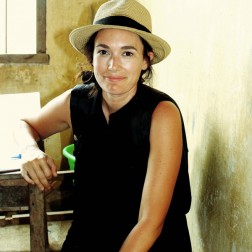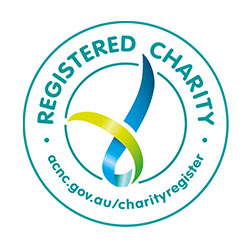You could say this story started long ago. Being Australian I have a complex relationship with water. We live on a desert continent with limited resources and from the get-go we learn a deep respect for the environment and water in particular. As a proud Victorian (Go Tigers) I’m very aware of the suffering endured by drought. My son was born in 2006 and I remember feeling confounded by the fact we were in severe drought, but still an abundance of clean water flowed through our taps. It was such a contrast to what I was seeing when I travelled overseas – a staggering contrast. You could argue this story starts with my intrepid love for Southeast Asia combined with my profession in construction and design. I’m not sure if it comes from labouring on building sites, designing interiors or project managing bathroom & residential builds, but when I travel I observe and study the plumbing of a country – rainwater catchments, harvesting, gutters, drainage, water sources, elbows, jars, tees and pops – you name it! My Dad would say this story begins with fate and that there’s water in my bloodline; I’m a plumber’s daughter, a plumber’s granddaughter and a plumber’s sister. But for me, this all started with getting lost.
In January 2014, I was in southern Cambodia looking for a cave when I happened upon a district by accident. An outdated Lonely Planet guide and a loose sense of direction saw me clock up two days trying to find the limestone cave for which I thought there were two possible routes in (there is one). Day one was long, hot and dusty. Around lunchtime, I entered a fairly remote village on a scooter via a long dirt road and was instantly hit with a level of poverty and vulnerability I wasn’t expecting. Life in this village was challenging and the water crisis in Cambodia wasn’t making it any easier. Stopping at a big orange esky on the roadside to attempt to ask for directions, I saw a mother scooping water from a large pot next to her small wooden home with an earthen floor. She gave the water to her young daughter who was straddled to her right hip and the little girl drank it. I don’t think the girl would have been able to walk if her mother had put her down – she was too limp and looked too weak, too ill. I didn’t want to stare and I didn’t want to impose, so I left. I will never in my lifetime forget the colour of that water. It was a brownish green and it appeared thick like soup with insects floating in it. I have seen plenty of water like this since, but that day was a first.
On day two I actually found the cave, but not before I firstly took another wrong turn and by mistake headed into a village not far from the village the day before. It was a pleasant, sunny day and what I found here was absolutely mind-blowing. There was vibrancy of colour, well-maintained homes built on stilts with gardens, lots of children and adults smiling and eager to practice their English, calling out “hello, how are you? What’s your name?” There was a school and a bustling market abundant with fresh produce. I couldn’t believe the contrast between the two villages I was witnessing in such close proximity to one another, not just in the same province, but the same district, only hundreds of metres apart. As I was riding out of the village I saw and heard a gaggle of children in a front garden and in the middle were two kids pumping water from a well. It was then that it hit me; the difference was this village had clean water. It was everything.
That day changed me. From that day, I couldn’t just do nothing. I spent two years voraciously and meticulously researching the water crisis in the world, but in particular Cambodia, a country I had fallen madly in love with for many reasons, but mostly for its people – the most resilient, kind, persevering and humble you will meet. At the time, over 780 million people worldwide didn’t have access to safe and clean water; over 1 billion people were practicing open defecation each day and every 21 seconds a child died from water-related illness. In Cambodia the statistics were grim. They still are. Over 5 million Cambodians are without access to safe and clean water and over 9 million are without sanitation. 22% of Cambodians live below the poverty line, 53% of the population is under the age of 24 and over 1,000 children die each year from diarrheal diseases from dirty water. I searched for approaches and solutions, I searched for experienced, respected and groundbreaking local partners and I found a team of the right people who share the same values and drive. On March 24th 2016, Community Generation was born, a registered Australian charity. Our mission is to bring clean and safe water to developing Cambodian communities. We believe every human on the planet has the right to access clean water and we’re committed to creating positive and sustainable change within Cambodia. Currently, Community Generation boldly focuses our projects solely in rural Cambodia and we work toward a day where every Cambodian has access to a safe and clean water source and sanitation.
On April 20th 2016, I made an even bolder move and got on a plane to Cambodia. Shortly after, Community Generation launched an online crowdfunding campaign with the amazing support of our talented ambassadors, well-known Australian pop trio The Basics. In 3 weeks we raised over 15K from a group of generous and supportive individuals and businesses to help us reach our first goals as an organisation. I stayed on the ground in Cambodia for 5 months, self-funded, to build and project manage Community Generation’s first clean water projects with our local partners. The projects were demanding and rewarding in equal measure and I’m proud to say a huge success. Nothing compares to the joy on a child’s face when clean and safe water flows through the tap at their school for the first time, or when a mother doesn’t have to constantly fear for her child’s health anymore because for the first time they have clean water in their home. We know we are a young organisation and we are just getting started, but we are committed and we are determined. We believe in a holistic approach to our work. We believe in robust systems and practices. We believe in partnering locally. We believe that we are a community-minded generation that is changing the world and will continue to do so. With your support we know we will help end the water crisis in Cambodia. We won’t stop until it happens. Water transforms life and together we can all make a difference. I’ll never forget the day I got lost and yet found something so great.

Lauren Adele Stevens
Founder & CEO




